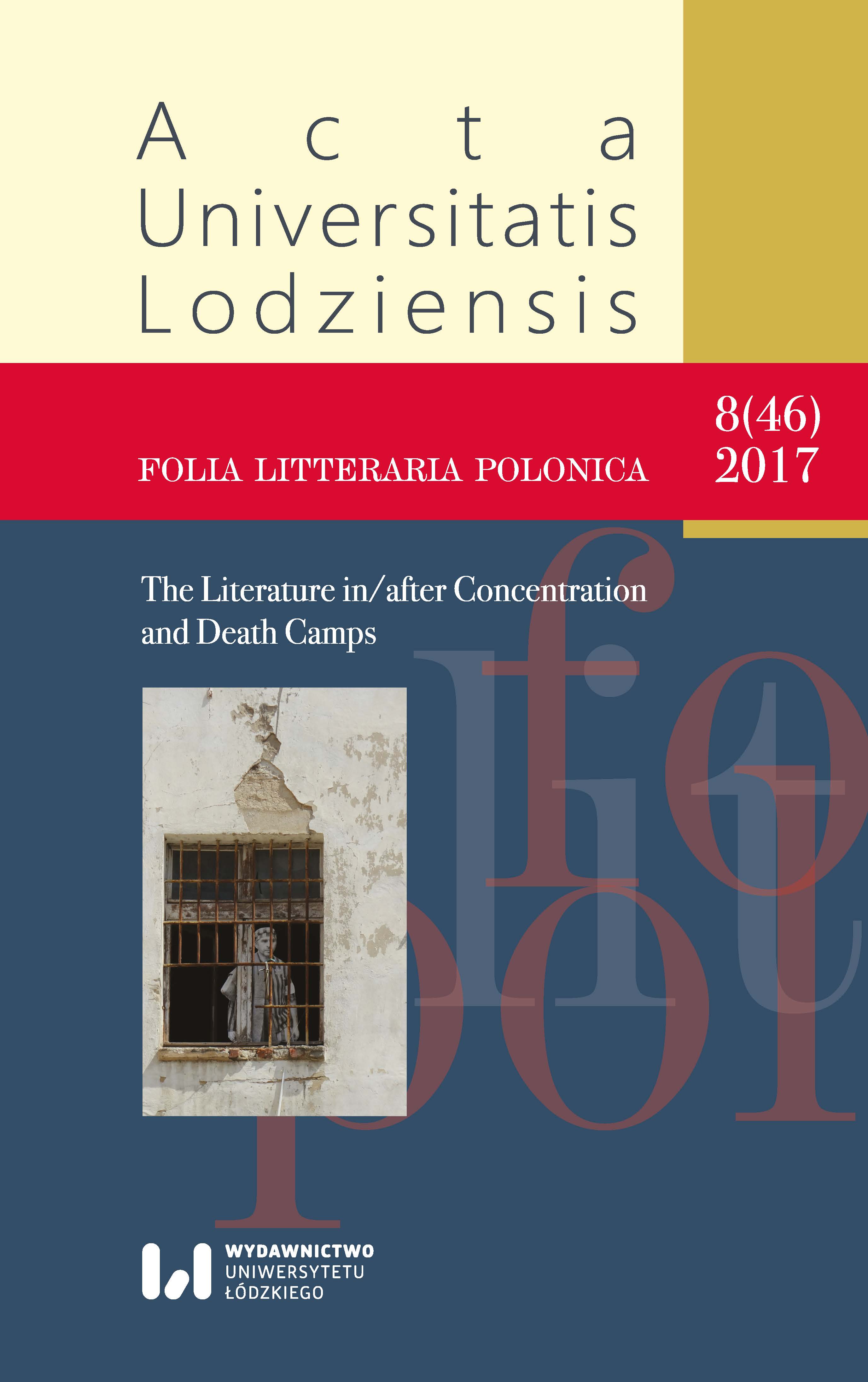Survival strategy. The Death Brigade by Leon Weliczker
DOI:
https://doi.org/10.18778/1505-9057.46.10Słowa kluczowe:
Extermination, Janowska camp, Sonderkommando, trauma, control of emotionsAbstrakt
The article discusses the account by Leon Weliczker (The Death Brigade) who belonged to the Sonderkommando in the Janowska camp. When describing everyday life centring on the removal of corpses, Weliczker also revealed his own methods for survival. Trauma discourse focusses on trauma’s later influence, in the case of the analysed text that applies to an attempt at recording a continuing traumatic state. In applying the psychological context, the author indicates how Weliczker tried to minimise the influence of trauma by utilising various mechanisms for controlling and suppressing emotions.
Pobrania
Bibliografia
Briere John, Scott Catherin, Podstawy terapii traumy. Diagnoza i metody terapeutyczne, trans. P. Nowak, Instytut Psychologii Zdrowia. Polskie Towarzystwo Psychologiczne, Warsaw 2010.
Google Scholar
Greif Gideon, „…płakaliśmy bez łez…”. Relacje byłych więźniów żydowskiego Sonderkommando z Auschwitz, trans. Jan Kapłon, Żydowski Instytut Historyczny, Państwowe MuzeumAuschwitz–Birkenau, Warsaw–Oświęcim 2007.
Google Scholar
Łosiak Władysław, Psychologia emocji, Wydawnictwa Akademickie i Profesjonalne, Warsaw 2007.
Google Scholar
Natura emocji. Podstawowe zagadnienia, Paul Ekman and Richard J. Davidson (eds.), trans. B. Wojciszke, Gdańskie Wydawnictwo Psychologiczne, Gdańsk 2002.
Google Scholar
Weliczker Leon, Brygada śmierci (Sonderkommando 1005). Pamiętnik, Ośrodek „Brama Grodzka – Teatr NN”, Lublin 2012,
Google Scholar
Żywulska Krystyna, Przeżyłam Oświęcim, tCHu, Państwowe Muzeum Auschwitz–Birkenau, Warsaw 2008.
Google Scholar











